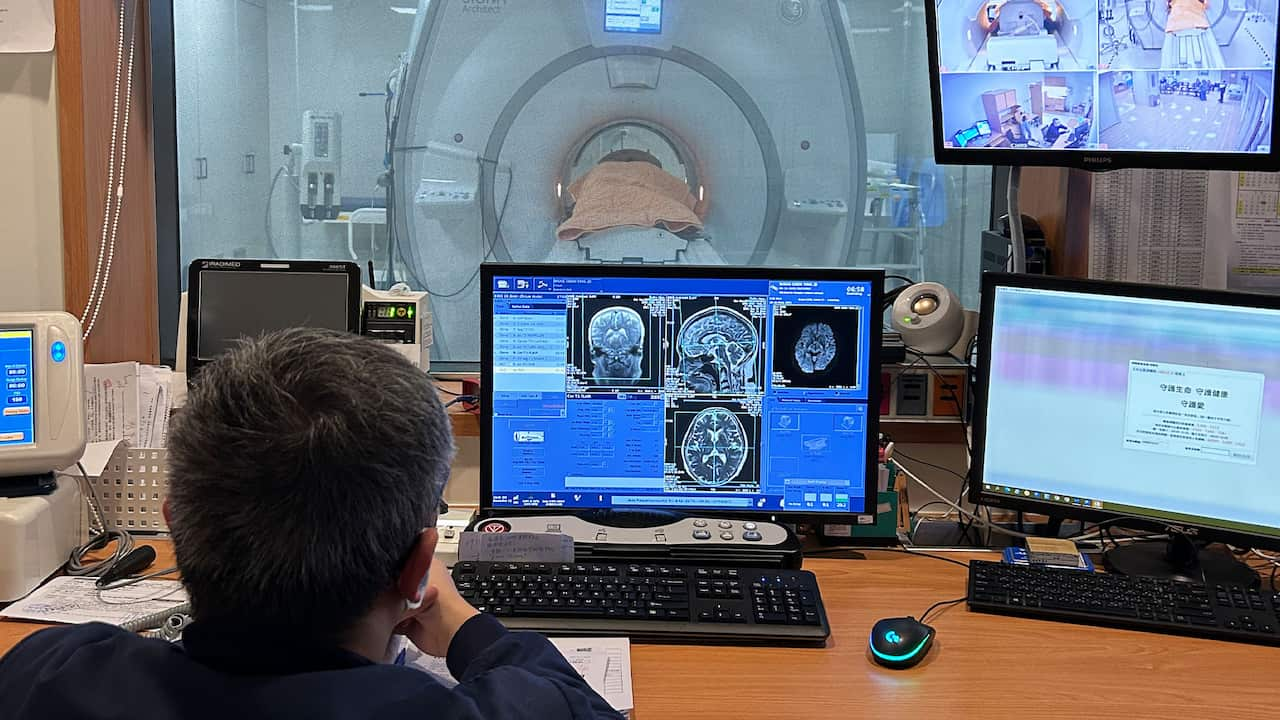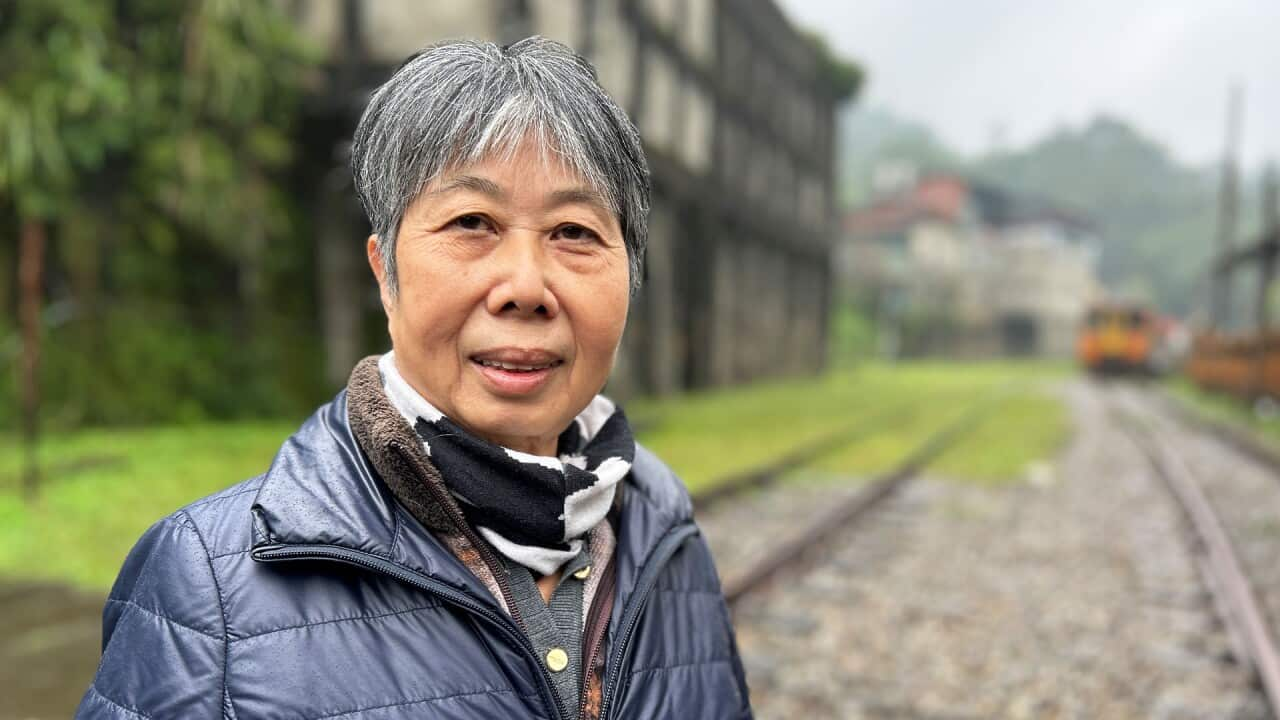Watch Dateline’s latest episode Taiwan’s Dementia Village on SBS On Demand.
Stream free On Demand

Taiwan's Dementia Village
episode • Dateline • News And Current Affairs • 28m
episode • Dateline • News And Current Affairs • 28m
When Lin Su Lan started to struggle to recall the names of her colleagues of ten-odd years — no matter how hard she tried — she knew she had to see a doctor.
Five years ago, she was diagnosed with mild cognitive impairment, one of the earliest stages of dementia.
Most commonly caused by Alzheimer’s disease, dementia — a set of degenerative brain conditions — is incurable and irreversible, with the later stages leading to severe memory loss, disorientation in place and time, and complete dependence on carers.
Now 68, Lin Su Lan lives with her sister, who helps her to get on with her daily life.
Fortunately for them, their home village, Pingxi, is the site of a world-first experiment that could be the future of dementia care.
A former mining town 30km from the Taiwanese capital Taipei, Pingxi has the oldest population in the country. Over a third of its 4,000 residents are over 65, and about 120 of them are living with dementia.

Lin Su Lan and her sister Hsiu Huan were born in Pingxi. Together they run a heritage-listed Japanese tea house and a BnB. Source: Supplied
It means its elderly residents, most vulnerable to developing dementia, can continue to live in place, with immediate access to care and support without having to move to a new environment.
"In Pingxi, we let them live in the real world, in an actual society. They don’t have to leave their hometown and can live directly in this place," said Dr Lee Chia Fu, a physician from Tzu Chi Hospital.
"We are quite worried about the dementia population that is coming like a tsunami. So, we must prepare as soon as possible," Lee said.
Taiwan’s population is rapidly aging, becoming what’s known as a super-aged society, where one out of every five people is now over the age of 65.

Exercise and social activities are a crucial part of dementia care in Pingxi, as they have been proven to help slow cognitive decline. Source: SBS / Louis Dai
The number of people living with dementia in the Asia Pacific region is projected to triple between now and 2050.
Taiwan is already facing the crisis: one in eight elderly people over 65 there has dementia, compared to one in 20 worldwide. And this figure is expected to increase.
Pingxi's experiment is being keenly watched around the world, including in Australia, where dementia is already the second leading cause of death overall.
Almost $3 billion billion was spent on dementia care in Australia in 2021, most of which went into high care needs. But it's estimated 50 per cent of people with dementia in Australia remain undiagnosed.
What makes Pingxi dementia-friendly
Every aspect of daily life here has been carefully crafted in a radical community-wide experiment to rethink dementia care.
To help make Pingxi a safer place for people with dementia to live, the town has implemented a dementia "guardian angel" network. Now, 60 per cent of local businesses are trained by the local government to recognise dementia symptoms and better understand how to interact with people living with this condition.

Signs indicating local businesses in Pingxi that have completed dementia-friendly training. Source: SBS / Louis Dai
"In the beginning, because we didn’t understand, interacting with dementia patients would lead to conflicts," Lee Wen-Chuan, who runs a grocery store, said.
"But after receiving training, I learned communication skills, and my mindset changed. So the services and relationships have improved over time."
Now he accepts returns of food bought by people with dementia, who then forget to cook them, to help their families avoid waste and get a refund.
He says his own mother was diagnosed with dementia too late due to cultural stigma and didn’t receive the care she needed in time. At 92, she has lost the ability to speak and move, and now requires around-the-clock care.
Another grassroots initiative is a "buddy program", where a person living with dementia is teamed up with a volunteer who regularly checks in on them.

Local grocer Lee Wen-Chuan understands the struggles of living with a dementia patient. His mother is now bed-ridden due to a late diagnosis. He has become one of the trained "guardian angels" who help people living with dementia and their families. Source: SBS / Louis Dai
While dementia is incurable and degenerative, there are ways of slowing down its progression — including through regular exercise and social interactions. Classes like these aim to prevent the worsening of symptoms without requiring patients to travel far.
"We don’t think of dementia as just a problem of the brain," says Dr Lin Tai Ren, the former director of Pingxi District Public Health Centre.
"Exercise therapy is the most effective for an elderly dementia patient. So the main reason why we keep encouraging elderly people to exercise is that we need to delay their disability from getting worse."
Getting in early
According to Lin, the main reason that makes Pingxi dementia-friendly is its streamlined diagnosis process that aims to catch the symptoms early.
"Dementia is irreversible but when it is extremely mild and we treat it, the whole progress will gradually slow down, even slower than the normal rate. Therefore, early diagnosis and timely treatment are critical to a dementia patient."
Labelled 'The Green Way Passage’, the town has established a diagnosis process that involves preliminary screening, followed by a visit to the closest hospital, a three-hour round-trip, to conduct MRI scans, blood tests, and a consultation, via the town’s so-called 'dementia van’ — all of which are heavily subsidised by the government.

The main reason that makes Pingxi dementia-friendly is its streamlined diagnosis process that aims to catch the symptoms early. Source: SBS / Louis Dai
For long-time Pingxi residents suffering from dementia, like Wang Chen Yingzi, it means they can age in place.
"After living here for 80 years, I have a deep connection to this place. My parents raised me here. I can’t just leave," she said.
"And Pingxi has built a great dementia-friendly environment. We all care for each other, look out for one another. So of course, I can’t leave."





